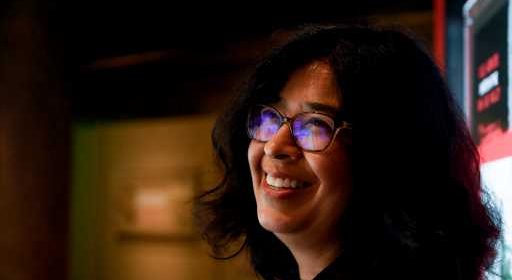Nicki Gonzales is Colorado’s new state historian

The history of history is that it is a thing said and done. Facts were facts, researched and written, taught in schools and used to define our collective identity.
The local version, as it existed for generations: America’s story began with Columbus, found its soul with Jefferson and reached its dramatic high point somewhere between the end of World War II and the first lunar landing. Things like indigenous displacement and slavery, gender inequality and the denial of rights for LGBTQ citizens were noted sidebars in the heroic tale of all that we’ve accomplished.
History’s present is more dynamic, of course, as we have expanded the narrative to include the ways we have erred and the progress we have made toward rectifying our mistakes. Big evolutions — such as civil rights, the right to vote and gay marriage — are now major chapters. Today’s history still has holes in it, but it is bigger, richer, more honest.
As for the future of history, that’s in the hands of people like Nicki Gonzales, the new Colorado state historian, who envisions expanding it even further, though in different ways. Instead of focusing on massive events, she talks about collecting smaller histories, inviting ordinary folks to contribute their personal experiences and those of their families, so that they can be woven into the existing record.
“I’d like to see more unrecognized stories shared publicly so we can arrive at a truer sense of where we’ve been and who we are,” she said.
Especially, she said in an interview this week, she is interested in hearing from Coloradans whose history may have been excluded from our collective autobiography, including folks in the Latino community, which happens to include her own family. She’s the first Latinx to hold the job.
In that way, her mission is personal. Gonzales was born and raised in the Denver area and both her parents were born here as well. Her wider family geography expands to Southern Colorado and Northern New Mexico, and includes coal miners, agricultural field workers and meat packers — the sort of Coloradans whose stories are still in the sidebar stage.
That background inspired her to become a historian, she said, a job that gives her the freedom to delve into the things that are important to her.
Gonzales, who is a professor of history and vice provost for diversity and inclusion at Regis University, has a notable resume, with projects tapping both local and special interests.
While studying at CU Boulder, she worked as a researcher helping to build a case for attorneys representing families in the Sangre de Cristo region who were attempting to make the government honor rights bestowed, and later repealed, for land grants from the 19th century.
Another project was even closer to home.
“My father was a Marine in the Vietnam War but never wanted to talk to me about his experiences,” she said.
So she designed an oral history project to collect personal information from Mexican-American and Chicano Vietnam War veterans. She got the story from a wide range of viewpoints.
“And doing that has led my dad to be more open with me about Vietnam, which was always lurking in the background,” she said.
The state historian position isn’t fully defined. Gonzales describes it as simply helping the people who live here uncover and understand their past. The role rotates annually among the five members of the State Historian’s Council. Gonzales follows Duane Vandenbusche in the job.
The council was established in 2018 with the express purpose of applying “different perspectives and to reinforce the collective foundation of history and storytelling,” according to History Colorado. In other words, diversity is built into its goals.
As a practical matter, History Colorado points out that the council is in a position to take on tasks such as it did in 2020, “partnering with a commission formed by Mayor Michael B. Hancock to rename Denver landmarks and public spaces.” During that time, several iconic landmarks, including places like the former Stapleton neighborhood, re-evaluated names that were linked to darker moments of Denver’s past.
Gonzales said she will focus on getting young people connected to history, finding ways to let them share their own backgrounds, so they feel a kinship to the past and, hopefully, an enduring love of history.
But she’s open to different ways of “creating opportunities and space where people feel safe to share their experiences and the experiences of their ancestors.” One way may be to develop more partnerships between the state’s history agencies and community groups.
To that end, it matters that she is the first Latina. Her appointment was well-received in the community.
“Since this announcement has come out, I’ve gotten so many emails and phone calls and text messages where people from these marginalized communities are sharing stories of this individual, or that court case, or that neighborhood — things that I didn’t know existed.”
She plans to help the state collect and preserve what it can. The best method for that, she said, might simply be listening.
“James Baldwin said we all carry out histories with us,” she said, “and I’ve always agreed with that.”
Subscribe to our weekly newsletter, In The Know, to get entertainment news sent straight to your inbox.
Source: Read Full Article


